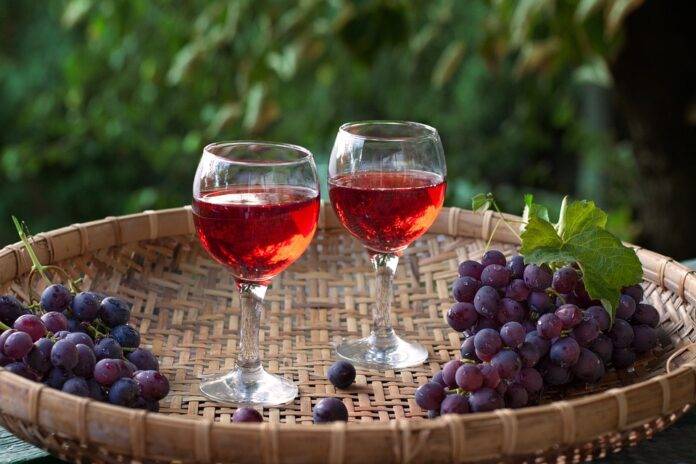Introduction
The Barossa Valley in South Australia is renowned globally for its premium wineries and high-quality wines. To maintain their global premium status, Barossa wineries must continuously innovate, adapt to changing consumer preferences, and uphold the region’s reputation for excellence. In this report, we will explore what Barossa wineries must do to sustain their global premium status.
Investing in Quality Vineyards and Winemaking
Financial Data:
Barossa wineries must invest in quality vineyards and winemaking practices to produce exceptional wines that stand out in the global market. According to industry data, the average cost of establishing a vineyard in the Barossa Valley ranges from $30,000 to $50,000 per hectare, depending on the location and soil quality. Additionally, wineries must invest in state-of-the-art equipment, skilled winemakers, and sustainable practices to maintain quality standards.
Industry Insights:
Leading Barossa wineries such as Penfolds, Henschke, and Torbreck have established a reputation for producing premium wines through their commitment to quality vineyards and winemaking. These wineries have invested in vineyard management techniques, such as hand-harvesting and minimal intervention winemaking, to ensure the highest quality wines.
Embracing Innovation and Technology
Financial Data:
Barossa wineries should embrace innovation and technology to improve efficiency, sustainability, and quality. According to industry data, the adoption of precision viticulture technologies, such as drones and sensors, can help wineries optimize grape production and improve wine quality. Additionally, investing in digital marketing and e-commerce platforms can enhance brand visibility and reach new markets.
Industry Insights:
Innovative Barossa wineries like Yalumba and Two Hands Wines have embraced technology to improve their winemaking processes and engage with consumers. Yalumba, for example, uses solar power and water recycling systems in their winery operations to reduce environmental impact. Two Hands Wines leverages social media and online platforms to connect with wine enthusiasts globally.
Focusing on Sustainability and Environmental Stewardship
Financial Data:
Sustainability and environmental stewardship are becoming increasingly important for consumers and investors. Barossa wineries can differentiate themselves by implementing sustainable practices, such as organic farming, water conservation, and carbon offset programs. According to industry data, sustainable wineries can attract environmentally conscious consumers and investors, leading to long-term financial benefits.
Industry Insights:
Leading Barossa wineries like Rockford and Hentley Farm have prioritized sustainability and environmental stewardship in their operations. Rockford, for example, has adopted organic farming practices and solar energy systems to reduce their carbon footprint. Hentley Farm has implemented water recycling and biodiversity conservation initiatives to preserve the region’s natural resources.
Building Strong Relationships with Distributors and Retailers
Financial Data:
To maintain global premium status, Barossa wineries must build strong relationships with distributors and retailers to ensure their wines reach the right markets and consumers. According to industry data, wineries should invest in sales and marketing strategies to expand distribution networks and secure placements in premium retail outlets and restaurants. Additionally, participating in industry events and trade shows can help wineries showcase their wines to a wider audience.
Industry Insights:
Successful Barossa wineries like Seppeltsfield and Langmeil Winery have established strong relationships with distributors and retailers worldwide. Seppeltsfield, for example, collaborates with top wine merchants and sommeliers to promote their premium wines in key markets. Langmeil Winery partners with luxury hotels and restaurants to feature their wines on exclusive wine lists, enhancing brand visibility and prestige.
Adapting to Changing Consumer Preferences and Market Trends
Financial Data:
Barossa wineries must stay attuned to changing consumer preferences and market trends to remain competitive in the global wine industry. According to industry data, consumer preferences for organic, biodynamic, and natural wines are on the rise, creating opportunities for wineries to innovate and diversify their product offerings. Additionally, the growing popularity of wine tourism and experiential wine tastings presents new avenues for wineries to engage with consumers and drive sales.
Industry Insights:
Forward-thinking Barossa wineries like Henschke and Torbreck have adapted to changing consumer preferences and market trends by introducing new wine styles and experiences. Henschke, for example, has launched a range of biodynamic wines to cater to eco-conscious consumers. Torbreck offers immersive wine tasting experiences and vineyard tours to attract wine enthusiasts seeking unique and memorable experiences.
Conclusion
In conclusion, Barossa wineries must continue to prioritize quality, innovation, sustainability, and consumer engagement to maintain their global premium status. By investing in quality vineyards and winemaking, embracing innovation and technology, focusing on sustainability and environmental stewardship, building strong relationships with distributors and retailers, and adapting to changing consumer preferences and market trends, Barossa wineries can secure their position as world-class producers of premium wines. By staying ahead of industry trends and delivering exceptional wine experiences, Barossa wineries can continue to thrive in the competitive global wine market.




